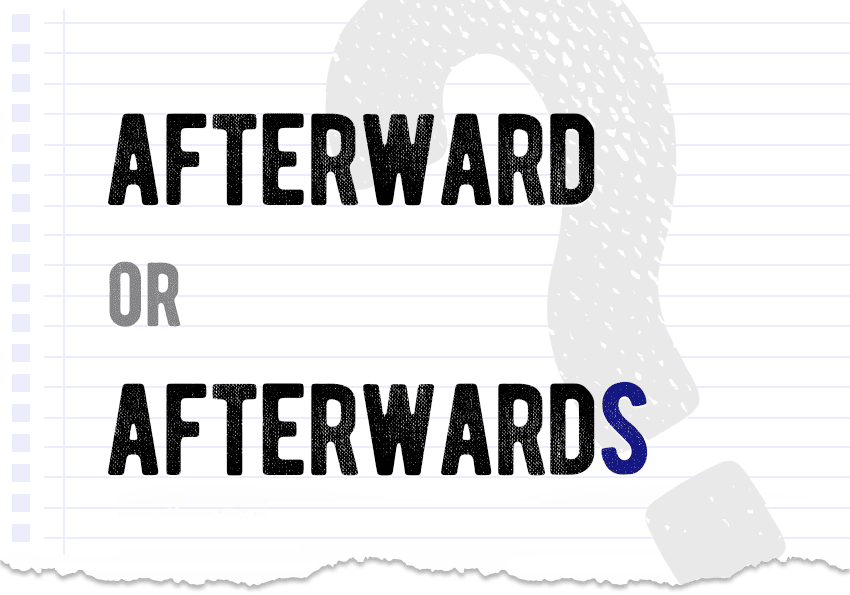Afterward or afterwards – what’s the difference? Which one is correct?
You may have seen this word written and pronounced both ways: afterward or afterwards. Both spellings can also be found listed in the dictionary. But what is the difference and which one should you use? See below for a full explanation.

Afterward or afterwards – which form is correct?
Which is correct, afterward or afterwards? The short answer to this question is – both. The two words can be used interchangeably to mean at a later time, but there are subtle differences you may want to take into account before using either of them. It all depends on where you’re from or who you’re talking to.
Afterward or afterwards – what is the difference?
The differences here run along geographical lines. Like with some of the other adverbs ending in -ward(s), one of the options is more common in American vs. British English.
In spoken and written British English (and also Canadian English), the more popular option is afterwards. Both afterward and afterwards are standard in spoken American English, the former is, however, sometimes considered more appropriate for formal writing. Since both are correct, the choice can also be motivated by personal preferences.
Afterward or afterwards? Now it is all clear! Examples from literature and press
Soon afterward, when German submarines attacked more American ships, the United States entered the war.
Amy Butler Greenfield, The Woman All Spies Fear
At that juncture in his career, Pattinson said, “I’d been doing really fun, interesting movies — to me, anyway. It didn’t seem like the obvious progression is to go and play Batman afterwards.”
New York Times, Feb 28, 2022
Prior to Star Wars, Nightingall worked as a boom operator on the Michael Caine films Alfie and Funeral in Berlin, and afterwards four Bond films including For Your Eyes Only and The Living Daylights.
The Guardian, May 21, 2020


